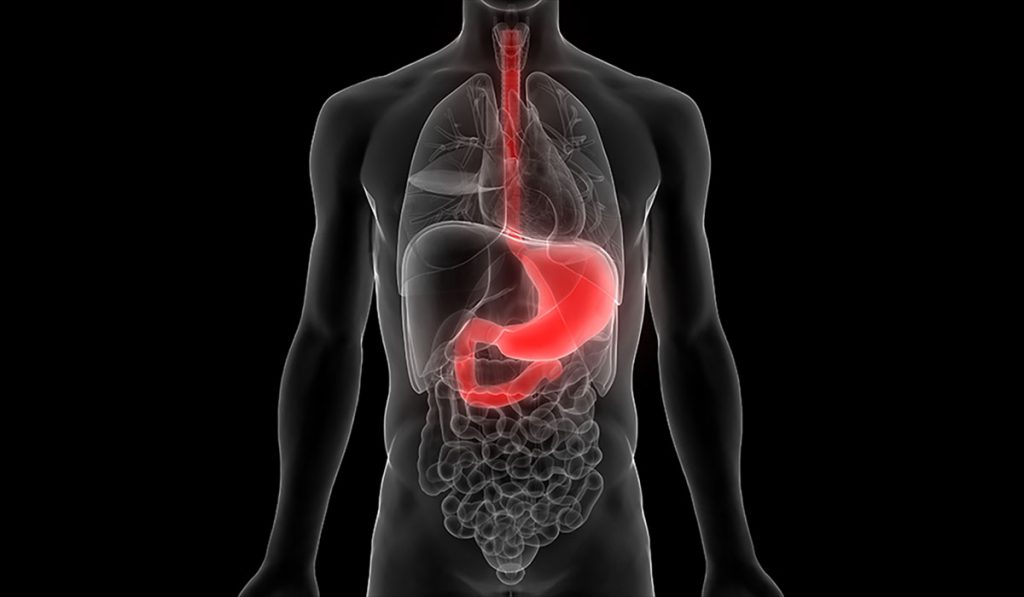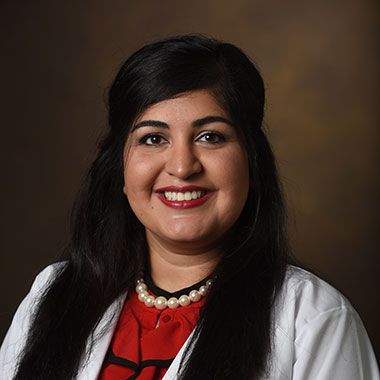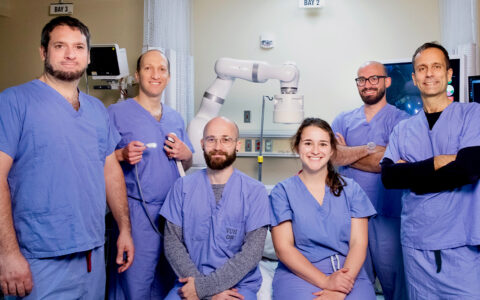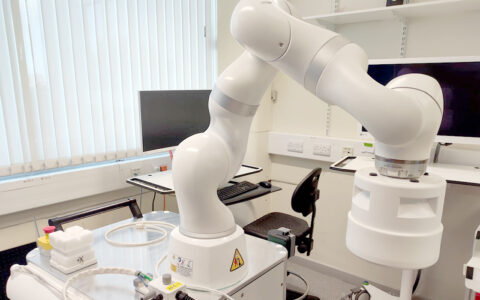Medicinal treatment and lifestyle modification achieve sustained weight loss in only a small minority of obese patients. Weight loss surgeries have a more dramatic and sustained impact. However, complications of surgery can be a limiting concern for some patients, and less than one percent of the eligible population avail themselves of these procedures.
Shabnam Sarker, M.D., a gastroenterologist at Vanderbilt University Medical Center, views endoscopic procedures as a viable, low-risk middle-ground for attaining sustained weight loss. Sarkar is adopting a precision medicine approach to identifying appropriate patients, working with colleagues at Vanderbilt and other centers to reveal individual factors that may affect outcomes.
“We are learning more and more that patients aren’t the same,” Sarker said. “Not only are there complicated mechanisms that impact weight loss, but they vary from individual to individual. My goal is to see the best-personalized strategy offered to each patient that will achieve sustained weight loss.”
“My goal is to see the best personalized strategy offered to each individual patient that will achieve sustained weight loss.”
The Predictive Potential of Motility Studies
Hormones, gut flora and gut motility are chief interests in bariatric research today. Sarker is the principal investigator for a gut motility study on patients’ autonomic nervous systems and the way their bodies handle stress. Her team will examine how gut motility impacts weight loss treatment across medication, lifestyle, endoscopic and surgical interventions.
“I became intrigued by the fact that my obese patients tended to have slow gut motility and gastroparesis, and I wanted to understand its significance,” Sarker said.
By placing probes in the gut that measure oxygen levels and heart rate changes, the study will monitor patients’ autonomous nervous systems while patients complete simple maneuvers. Researchers will then compare data before and after surgical or endoscopic procedures and track how the success of the procedures aligns with the data.
The autonomics data will be used to validate a model for determining who will respond better to a given procedure — a gastric sleeve versus a Roux-en-Y gastric bypass, for example. “Our goal is to be able to say that, based on a patient’s autonomic testing, it looks like they will have the best and most sustained results with this surgery or this particular endoscopic intervention,” Sarker explained.
New Options for Weight Loss
Gastric banding (LAP-BAND), surgical resection and gastric bypass are still commonly performed today. However, a wide range of endoscopic procedures are growing in popularity due to their lower complication rates[1], and the fact that they are repeatable. Most are also reversible.
Vanderbilt gastroenterologists and bariatric surgeons are exploring intragastric balloons as one endoscopic option. Sarker said that these and other mobile devices in the stomach trigger satiety sooner because of the physical space they occupy, but that there may be an additional effect. One new theory suggests that the contact balloons make with the endothelium may stimulate secretions of hormones that signal feelings of satiety.
Vanderbilt is also looking at offering endoscopic vertical sleeve gastrectomy, wherein physicians make the stomach smaller through plication—folding and suturing the lateral stomach medially to create a smaller stomach pouch. “Unlike surgical resection, this retains beneficial epithelium and could be reversible if there are complications,” Sarker said.
Additional endoscopic options include aspiration therapy, various suturing procedures, an array of saline and air balloon systems for the stomach and small intestines, and device implants at the lower esophageal and pyloric valve levels.
Promulgating the “Middle Ground” in Therapy Options
“We have not met the need to address obesity with campaigns like we’ve seen with tobacco,” Sarker said. “Promoting endoscopic procedures as a middle ground between the options of diet and medications on one hand, and surgery on the other, is a multidisciplinary task for gastroenterologists and first-line medical providers. We need to get the information out and empower people to take advantage of options available to them.”





